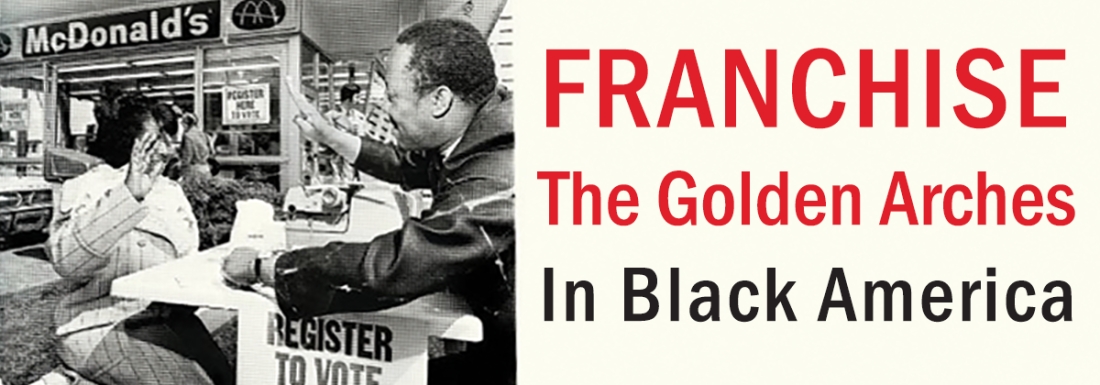As the civil rights movement waned in the 1960s and early ’70s, federal programs promoted a new means of racial equality: the franchising of McDonald’s and other fast-food restaurants by African Americans in their own neighborhoods.
Indeed, fast food became one of our country’s greatest generators of African American wealth. But its saturation of poorer black urban communities has come with a significant downside. People eat too much of it. Children are too enticed. The jobs that are provided pay too little. Fast food came to symbolize capitalism’s villainous impact on our nation’s most vulnerable populations.
Georgetown University's Marcia Chatelain examines this complicated relationship in a discussion of her new book Franchise.
